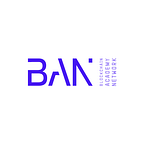Blockchain creates new business opportunities for the car industry and the financial sector
Blockchain is a modern version of the financial accounts that we have been using for centuries. But how does blockchain technology actually work? We have gathered some examples of how the technology is creating new business opportunities in a number of areas.
Although the blockchain technology is young, it has already created new business opportunities. The Blockchain Academy Network, which is a collaboration between a number of business-oriented and academic actors, presents concrete examples of how the technology can be used in a large number of areas. Examples range from the financial and healthcare sectors to music streaming and the car industry. You can learn more about the advancing technology in this video, which can be found on the network’s website.
Blockchain can be seen as a large book or a distributed database shared within a network of people. Everyone on the network gets a full copy. And everyone with a copy can add new records but crucially they cannot change any record that is already in there. If you need to change the information of a record, instead of rewriting it you would add new one.
A blockchain is a chain of blocks that contains information. Each block contains information of the transaction and the hash of the block which is kind of the fingerprint of the block. In the moment a new block is created a total unique hash is created, too. This hash identifies the block just as our fingerprints do. And if you make any changes to the block the hash will change, too. This ensures that all the blocks on the chain are connected securely to the previous one and cannot be tempered with.
The financial and automotive sectors
Technology has created new opportunities in the banking sector.
In 2020, the Swiss HSBC bank moved 10 billion worth of securities to a blockchain-based custody platform. This has given the bank real time and standardized access to records of securities bought on private markets and reduces the time it takes investors to make queries on holdings.
But this technology is not only used in the financial world. Bosch, one of the world’s leading suppliers to the automotive industry, has created a blockchain-based platform that enables cars to communicate directly with parking facilities. This allows drivers to find available spots without the necessity of drawing a parking ticket.
The automotive industry is also exploring smart mileage recorders that frequently write the car mileages into a blockchain making it impossible for scammers to alter the mileage recorder and make the car appear newer than it is.
The technology is also used to tag original vehicle parts making it reliable to check the authenticity of given parts anywhere in the world thus securing against copy spare parts.
Forces transparency
It is not only relevant for car parts. Any product can be tagged and assigned with a unique identity transplanted on a secure and transparent blockchain. It allows supply chains to share information about the location of the product in real time letting companies and consumers know the status of every product on the supply chain. These transparent supply chains can, for example, help to ensure that a designer bag is original.
Blockchain also allows you to issue contracts in real time without the need of a middleman. These smart contracts can be used by anyone, for example musicians and music streaming services to avoid problems with wrong attributions or unfair payment. In the same way, by using smart contracts NGOs, foundations and crowdfunding seekers can assure transparency and accountability to their donors.
It is furthermore relevant in the field of health. Blockchain makes it possible to share data between hospitals in a secure way. And right now, a European consortium is in the process of developing a blockchain-based health pass in relation to COVID-19, which can give people who are not infected the opportunity to return to a normal everyday life.
FACTS
The Blockchain Academy Network is a new two-year project supported by the Danish Industry Foundation, which aims to train business leaders in the use of blockchain technology. The purpose of the initiative, which is aimed at both chief executives and technical managers in the Danish business community, is to give them both technological, business and managerial insight into the blockchain technology.
The partners behind the initiative are the Alexandra Institute, the Concordium Blockchain Research Center at Aarhus University, the Copenhagen Institute for Futures Studies, the European Blockchain Center at the IT University in Copenhagen and the company Concordium.
